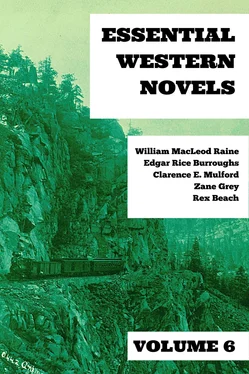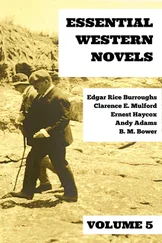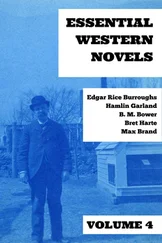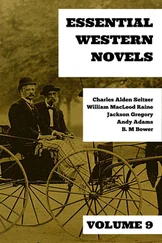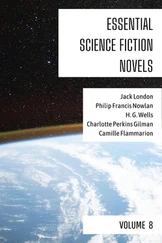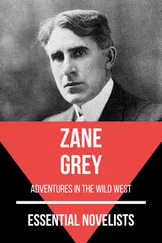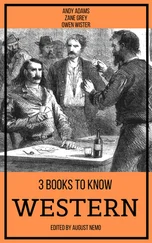"You can't do it, under here!" said Pickles, reloading the bean-shooter from a bulging cheek. "I can shoot yore liver out before you can whirl it!" Pickles was quite a big boy now, but threatened never to grow dignified; and besides, he had been badly spoiled by everybody on the ranch.
"Whirling livers never appealed to me," rejoined Tex, putting the rope back. "Never," he affirmed decidedly; "but I'm goin' to whirl yourn some of these days, an' you with it!"
"Those he loves, he annoys," said a low, sweet voice, its timbre stimulating the puncher like a draught of wine. His sombrero sweeping off as he turned, he bowed to the French Rose, wife of the big-hearted half-owner of the ranch. If only he had chosen a woman like this one!
"I seem to remember him annoyin' Dave Owens, at near half a mile, with Hoppy's Sharps," he slowly replied. "Nobody ever told me that he loved Dave a whole lot." At the momentary cloud the name brought to her face he shook his head and growled to himself. "I'm a fool, ma'am, these days," he apologized; "but it strikes me that you ought to smile at that name—it shore played its unwilling part in giving you a good husband; an' Buck a mighty fine wife. Where is Buck?"
"Inside the house, walking rings around the table—he seems so, so—" she shrugged her shoulders hopelessly and stepped aside to let Tex enter.
"I don't know what he seems," muttered Tex as he passed in; "but I know what he is—an' that's just a plain, ornery fool." He shook his head at such behavior by any man who was loved by the French Rose.
Buck stopped his pacing and regarded him curiously, motioning toward an easy chair.
"Standin's good enough for me, for I'm itchin' with th' same disease that you imagine is stalkin' you," said Tex, looking at his old friend with level, disapproving gaze. "It don't matter with me, but it's plain criminal with you. I'm free to go; yo're not. An' I'm tellin' you frank that if I had th' picket stake that's holdin' you, all h—l couldn't tempt me. Yo're a plain, d—d fool—an' you know it!"
Buck leaned back against the edge of the table and thoughtfully regarded his companion. "It ain't so much that, as it is Hoppy, an' Red, an' Johnny," he replied, spreading out his hands in an eloquent gesture. "They could write, anyhow, couldn't they?" he demanded.
"Shore," affirmed Tex, grinning. "How long ago was it that you answered their last letters?" He leaned back and laughed outright at the guilty expression on his friend's face. "I thought so! Strong on words, but cussed poor on example."
"I reckon yo're right," muttered Buck. "But that south range shore calls me strong, Tex."
"'Whither thou goest, I go' was said by a woman," retorted Tex. "'Yore people are my people; yore God, my God.' I'm sayin' it works both ways. You ought to go down on yore knees for what's come to you. An' you will, one of these days. Think of Hoppy's loss—an' you'll do it before mornin'. But I didn't come in to preach common sense to a lunatic—I come to get my time, an' to say good-bye."
Buck nodded. Vaguely disturbed by some unnamed, intermittent fever, he had been quick to read the symptoms of restlessness in another, especially in one who had been as close to him as Tex had been. He went over to an old desk, slowly opened a drawer and took out a roll of bills and a memorandum.
"Here," he said, holding both out. "Far as I know it's th' same as when you gave it to me. Ought to be seven hundred, even. Count it, to make shore." While Tex took it and shoved it into his pocket uncounted and crumpled the memorandum, Buck also was reaching into a pocket, and counted off several bills from the roll it gave up. These he gravely handed to his companion, smiling to hide the ache of losing another friend.
"I shore haven't earned it all," mused Tex, looking down at the wages in his hand. "I reckon I'm doin' this ranch a favor by leavin', for there ain't no real job up here no more for any man as expensive as I am. You got th' whole country eatin' out of yore hand, an' th' first thing you know th' cows will catch th' habit an' brand an' count 'emselves to save you th' trouble of doin' it."
"You'll be doin' us a bigger favor when you come back, one of these days," grinned Buck. "You shore did yore share in trainin' it to eat out of my hand. For a while it looked like it would eat th' hand—an' it would 'a', too. Aimin' to ride down?"
Tex's eyes twinkled. "How'd you come to figger I'm goin' down?"
Buck smiled.
"No, reckon not," said Tex. "Ridin' as far's th' railroad. I'll leave my cayuse with Smith. When one of th' boys goes down that way he can get it. I'll pay Smith for a month's care." Reading the unspoken question in his friend's eyes, he carelessly answered it. "Don't know where I'm goin'. Reckon I'll get down to th' SV before I stop. That'd be natural, with Red an' Hoppy stayin' with Johnny."
"They might need you, too," suggested Buck, hopefully. If he couldn't be with his distant friends himself, he at least wished as many of them to be together as was possible.
"I'm copperin' that," grunted Tex. His eyes shone momentarily. "Yo're forgettin' that our best three are together. Lord help any misguided fools that prod 'em sharp. Well, I'm dead shore to drift back ag'in some day; but as you say, those south ranges shore do pull a feller's heart." He looked shrewdly at his friend and his face beamed from a sudden thought. "We're a pair of fools," he laughed. "You ain't got th' wander itch! You don't want to go jack-rabbitin' all over th' country, like me! All you want is that southwest country, with yore wife an yore friends on th' same ranch; down in th' cactus country, where th' winters ain't what they are up here. I'm afraid my brain's atrophied, not havin' been used since Dave Owens rolled down from his ambush with Hoppy's slugs in him for ballast."
Buck looked at him with eager, hopeful intentness and his sigh was one of great relief and thankfulness. He need not be ashamed of that longing, now vague and nameless no longer. His head snapped back and he stood erect, and his voice thrilled with pride. Tex had put his finger on the trouble, as Tex always did. "I've been as blind as a rattler in August!" he exclaimed.
"Not takin' th' time to qualify that blind-rattler-in-August phrase, I admits yo're right," beamed Tex. He arose, shoved out his hand for the quick, tight grasp of his friend and wheeled to leave, stopping short as he found himself face to face with Rose Peters. "A happy omen!" he cried. "Th' first thing I see at th' beginnin' of my journey is a rose."
She smiled at both of them as she blocked the door, and the quick catch in her voice did not escape Tex Ewalt.
"I was but in the other room," she said, her face alight. "I could not but hear, for you both speak loud. I am so glad, M'sieu Tex—that now I know why my man is so—so restless. Ruth, she said what I think, always. We are sorry that you mus' go—but we know you will not forget your friends, and will come back again some day."
Buck put his arm around his wife's shoulders and smiled. "An' if he brings th' other boys back with him, we'll find room for 'em all, eh Rose?" He looked at his friend. "We're shore goin' to miss you, Tex. Good luck. We'll expect you when we see you."
Tex bowed to Rose and backed into the curious Pickles, whom he lightly spanked as a fitting farewell; and soon the noise of his departure drummed softer and softer into the south.
––––––––

REFRESHED MEMORIES
The dusty, grimy, almost paintless accommodation train, composed of engine, combination smoking-baggage car, and one day coach, rumbled and rattled, jerked and swayed over the uneven roadbed, the clicking at the rail joints sensible both to tactual and auditory nerves, and calling attention to the disrepair into which the whole line had fallen. In the smoking compartment of the baggage car sat Tex Ewalt, sincerely wishing that he had followed his first promptings and chosen the saddle in preference to this swifter method of traveling.
Читать дальше
